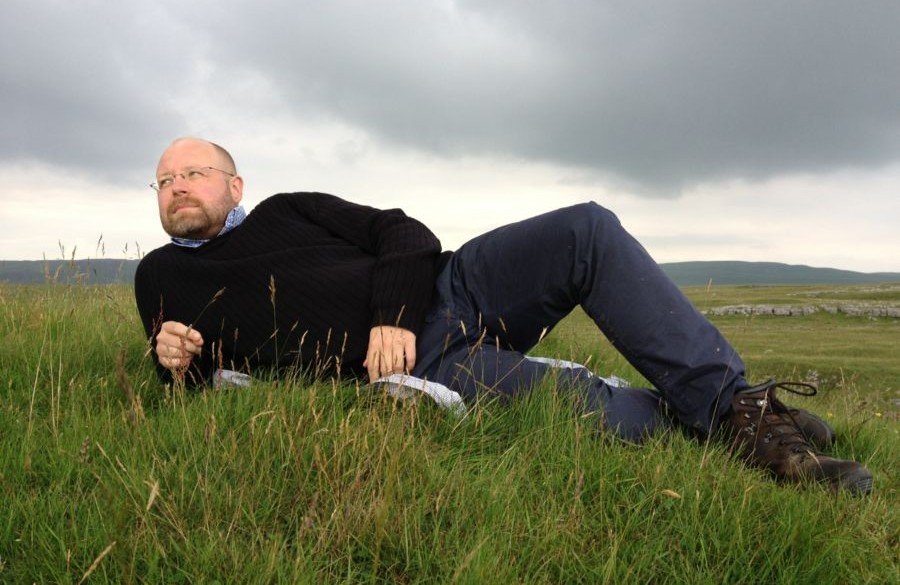Estonian World spoke to composer Jüri Reinvere in Berlin to talk about his experiences, creativity, European culture and Estonian identity.
Jüri Reinvere is an Estonian composer living in Berlin. His latest work, the opera “Purge”, based on Sofi Oksanen´s famous novel, premiered in Finnish National Opera in April 2012. He is currently writing his next opera “Peer Gynt” for Norwegian National Opera & Ballet, to premiere in November 2014.
Reinvere unites his Estonian heritage with his cosmopolitan life, having lived in Poland, Finland, Sweden, and Germany; and speaking many different languages every day. Reelika Virunurm met Jüri Reinvere in Berlin to talk about his experiences, creativity, European culture and Estonian identity.
Where and why did your expat journey start?
On one hand I had a feeling that it kind of runs in my family, that we have restless genes, always going abroad to study and explore, but also returning to Estonia. On the other hand I did not feel like I have to leave Estonia at any cost.
The opportunity came after the fall of the Iron Curtain. At the time, I was under great influence of Polish music, it was very, very important to me. So one could say that Szymanowski (Karol Maciej Szymanowski was a Polish composer and pianist) was really the main reason why I went to study in Poland.
Afterwards, I went to Finland in order to earn more money for my studies, planning to stay for ten months. As it sometimes happens in life, I stayed for 14 years instead. One of the main reasons that kept me in Finland, were my further studies at the Sibelius Academy. Sibelius Academy was, and still is, simply fantastic. In my opinion it is among the best ten music academies in the world. During these 14 years I also lived in Stockholm, and had a very strong Finland-Sweden connection in general.
After that, another turning point had come, and I felt the need to move on. I took another year to consider my options – Paris or Berlin for example. I chose Berlin, where I have been living since 2005, and I´m extremely content with my choice. I have always felt a connection with the German culture which was dominant in Estonia for a long time. I think that most Estonians still do. Estonia has a strong connection to Finland through similar language, climate, and cultural values, but one should not underestimate the German values in our culture either.
I had already spent 5-6 months in 2001 in Berlin before, taking part in a project, so I was familiar with its atmosphere, people, and cultural highlights. This was definitely one of the best decisions in my life. Berlin is still the best place for creative, artistic, and progressive people.
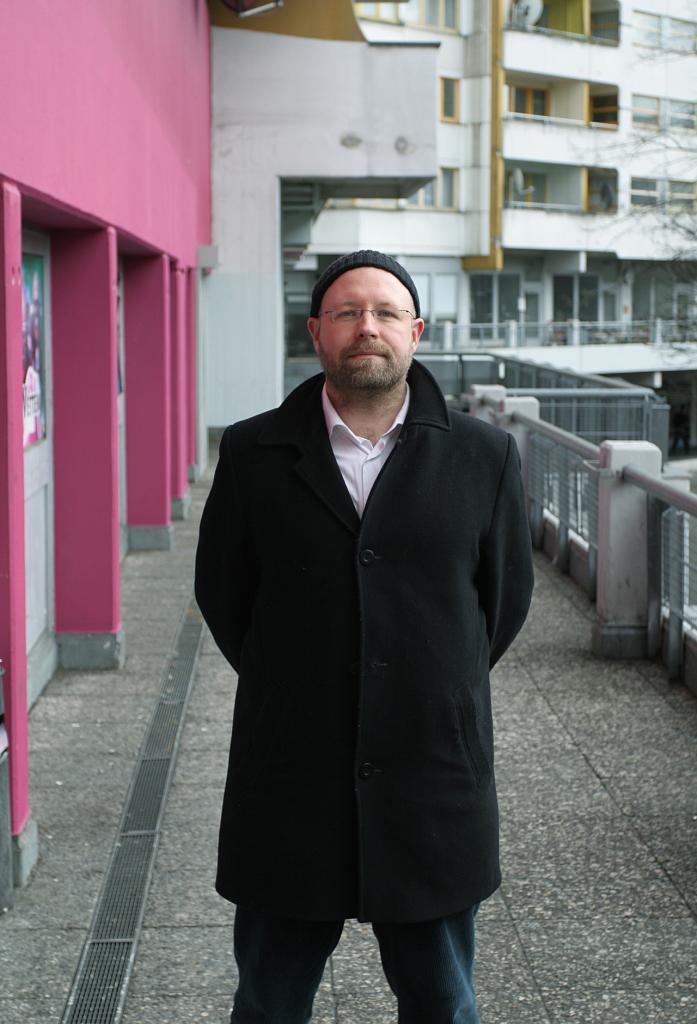
How have your experiences influenced your creative work?
I believe there are three main factors that have most influenced my work.
Firstly, my Estonian background, and also the Soviet Union background. It was kind of a double trauma for me at that time. Secondly, living in the Finnish countryside, in the middle of most daily and mundane questions. The Finnish society made me contemplate on human and cultural values. Thirdly, my years in Stockholm. This is where I truly felt I´m becoming an artist, developing further and transforming to be one; and finding my personal “art credo”, my personal attitudes towards art and creation.
Do you identify yourself as a cosmopolitan then?
Yes, I´m definitely very proud to be a cosmopolitan with Estonian roots.
I have always felt most comfortably when speaking different languages every day. Right now, I switch at least between four languages every day. During the Stockholm period of my life, my friend and mentor Käbi Laretei (an Estonian pianist) always impressed me by answering her telephone in a different language every time I called her!
I feel actually very lucky to have lived among different nations, and having explored them in depth. My mother did her PhD in St. Petersburg, so I have some fond memories of Russia from my childhood as well. Reading Russian literature, I get the feeling that I really know the landscape, its people, their character.
In Finland, I have truly experienced the Finnish everyday life, its thousand facets and its ordinary people. Similarly, I can also deeply relate to the Polish people. Reading Sofi Oksanen depicting Jyväskylä, or the Polish writer Czesław Miłosz describing the icy roads, small villages and collapsed old houses in the Polish countryside, it is all so familiar to me. I feel lucky to have experienced life in large European cities, but also in tiny villages.
All in all, I believe that my journeys have given me a lot of material for my creative senses, and a broad background and perspective into the whole European culture. My experiences enable me to develop my characters and understand their motives better, probably more than, say, a librettist who has spent his whole life working in Munich.
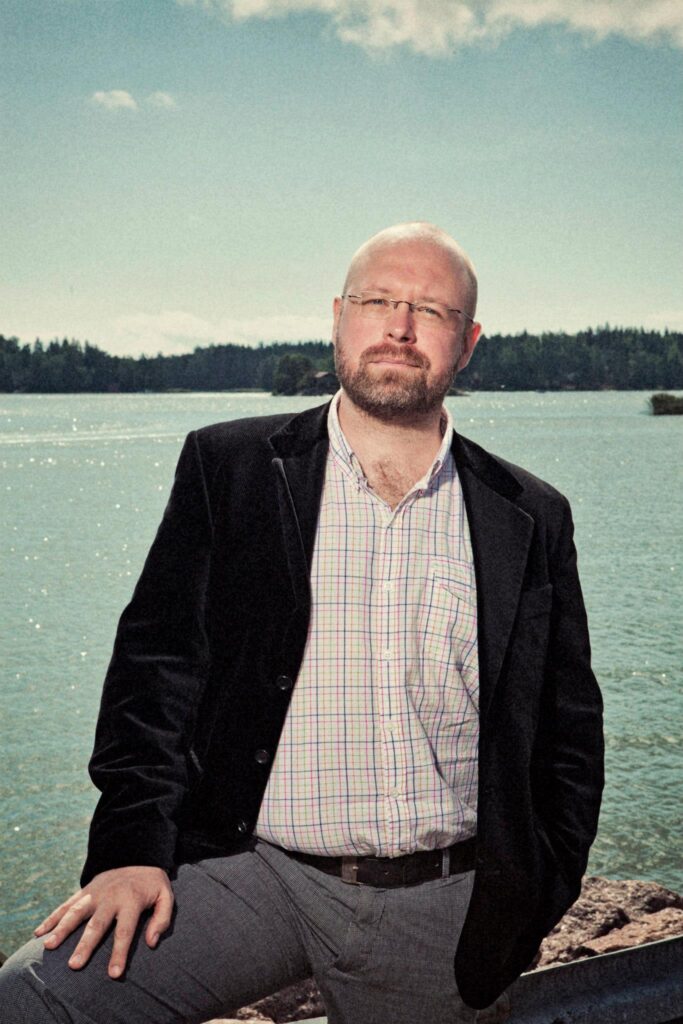
According to the Finnish media, the idea for opera “Purge” also started in Berlin? How did you meet Sofi Oksanen?
Well, yes, the Finnish media has made kind of a symbol out of it, they even wanted to know exactly in which café in Berlin Sofi and I were sitting when we came up with the idea. In my mind’s eye, I can see the journalist looking for the same café and sitting there for hours, hoping for a similar kind of inspiration (laughing).
I knew Sofi Oksanen already from my Berlin period. Artists usually get to know each other by first taking an interest in each other´s work, which is then followed by a personal contact.
In your interview to Helsingin Sanomat you also mentioned that writing the opera for “Purge” has transformed you completely?
This is due to many reasons; working on an opera is very demanding, very intensive, very solitary. It always reminds me of climbing a mountain, detaching yourself from the society. Everything is so different and intensive, forcing you to meet yourself all over again. You are not only working on the music, you are also working on yourself the whole time, with your own thoughts.
On the one side, you are creating the basics, studying the psychology of characters; and on the other side you are observing yourself in this process. And then it suddenly occurs to you that is a purge, a personal cleaning process of its own. You end the creation, coming out a completely different person.
The idea for the opera came to you while dreaming. What do you think are the main tools for creativity – is inspiration alone enough?
First of all, one cannot exist as an artist if one has weak techniques and skills. Creating anything at all is similar to an architect´s work – vision and form have to be in accordance.
My first relation to a piece of art is always intuitional; I start working on this intuition. The final parts of any creation, however, are always purely technical – I believe there has to be a balance. The whole process of creation and art is always rather surreal and abstract. Artists work with the vibrations in the air, and they must be able to interpret them and create value.
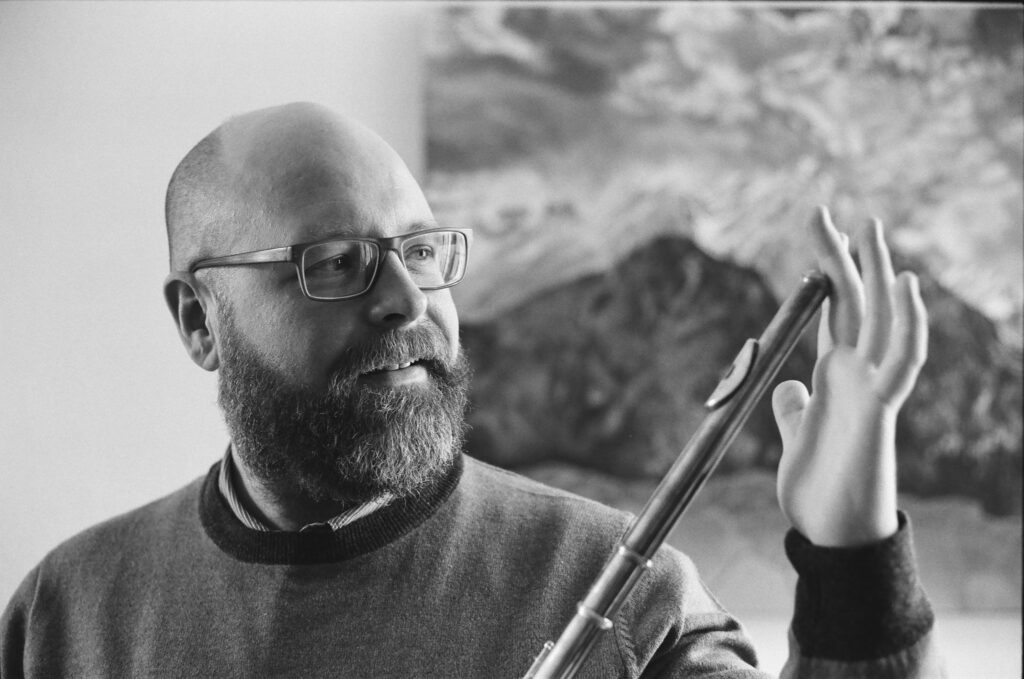
You are also a poet. Do you alligate your poetry in your other creations?
I have mainly used my own poetry as a part of my musical creations – not in the form of direct singing, it is not very common in classical music.
My poetry is usually being read out loud in my creations, using many different styles, most of them modern. I am also interested in so-called border areas, changing genres, art to documentary for example.
I have used documentary sounds in “Purge” as well – the recorded sounds of cars or radios from that time. But also borders between literature and music. I am not a visual artist, it is not one of my strengths, but I also wish this would simply remain one area of art where I´m not a professional.
It is not very common, but in both operas – “Purge”, and “Peer Gynt”, which I am writing for the Norwegian National Opera, I am both the librettist as well as the composer. There are already difficult assignments enough.
What do you think is the central theme of “Purge”? Why has it become so popular in Europe?
I think it brings out the question of how long are we as Europeans interested in our own history. In my opinion, “Purge” brings back the very important question of the Second World War to the European literature scene. It reminds us of the price all nations had to pay for this, even more the nations in periphery. “Purge” has a great role in reminding us that all over again.
Nevertheless, it has been harder to convince the Western European media at times that the characters in “Purge” are not only fictional, but that these questions and problems within the book still exist.
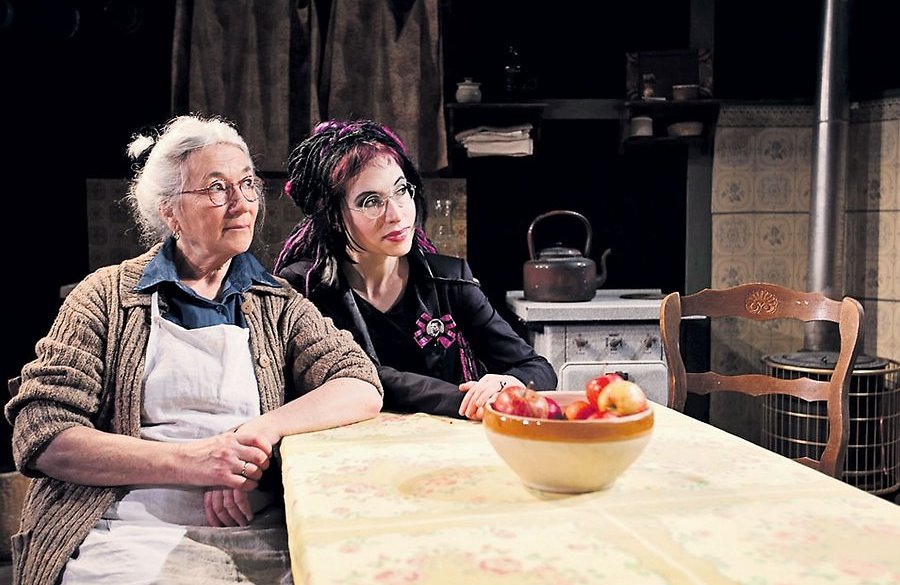
What is your opinion on the critique towards “Purge”, for example from Estonian journalist Piret Tali or writer Jaan Kaplinski – that life in the Soviet Union was not only terror and violence?
I think that it is kind of a new situation for Estonians – being confronted with their image. Nobody has ever told us before, this is what the outside world thinks of Estonia. The larger countries and cultures are very well aware of it.
Living in Poland for example, it was very common that an American, a Swede or an Englishman arrived and had a very strong image, an opinion about Poland. It does not have to be the same opinion the Polish have themselves, but every opinion has its own background and basis.
In micropsychology, the way one views itself as a person, is different from how others see us. Only through dialogue we can find out how the others see and understand us, as a person, or as a nation. I think that Estonians have until now kind of missed out on the truth about ourselves, about ourselves as a nation. Our opinion about ourselves has always been more of a monologue than dialogue. Even our language and culture are so different, so difficult, it is very hard for a foreigner to really “enter” and understand it, if possible at all. It can not be a true encounter, only a neutral one, where both parts speak English for example, and are able to co-exist.
What does this mean for Estonia and Estonians?
I think that Estonians are going through an identity crisis. Estonians have not yet detangled their traumatic history and the inflicted wounds. The genre of memoirs is strong and popular in Estonia, but it has not lead to healing. I think none of the post-soviet communities have really been through healing and purging.
Estonians have a strong self-preservation instinct, and fear of the unknown. This can be seen particularly clearly through the Estonian media – they are engaged only in themselves, and part of outside news and reportage is scarce. It can probably noticed more from abroad, and in comparison with the foreign media.
What would be your advice on this matter?
The source of our identity can only lie in being honest with ourselves. We should not try to deny our history and heritage, or say we are something else than we are. This does not solve the problem. But an identity crisis as a process, as a quest for identity can be very fruitful. I think we are also lucky in this matter – the Finnish do not have such a painful process of finding their identity as the Estonians.
I believe this quest for identity is only good for a nation, for a country. We should take in all the facets of our history and culture – the strong Russian and German influences, the similarities and differences with other Baltic countries. We might have had a rough history, but we have to make the best of it and acknowledge it as a strength.
I have always been proud of my Estonian heritage, and the Estonian musicians are well-known in the world. I have never had to answer ignorant questions, but if I did, I would simply tell them more about the beauty of Estonia, and explain that no, we do not use the Cyrillic alphabet.
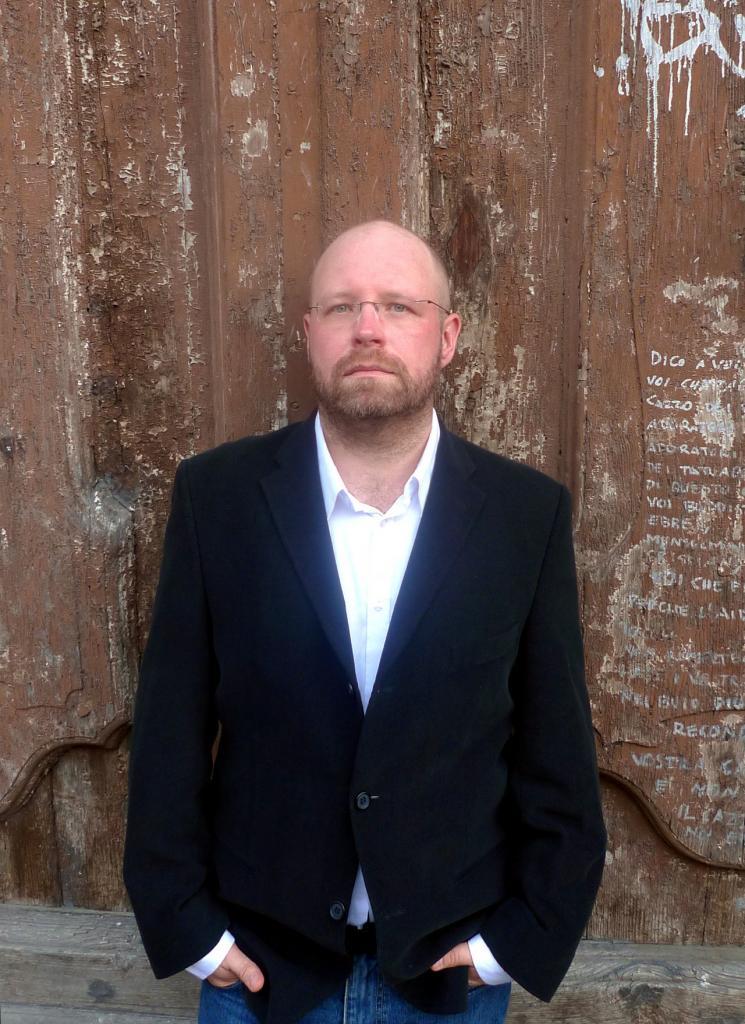
Where do you think Europe in general is going?
This is definitely a tough time for Europe – in general as well as in cultural life. In many countries people are trying to survive right now instead of being able to enjoy culture or learning new things. Sadly, there are also a lot of stereotypes in Europe, even between Estonians and Finnish people. In my opinion, the ordinary Finnish people are not at all like they are usually being depicted in Estonia, and vice versa, how we are being depicted across the Gulf of Finland.
Stereotypes are becoming too common in Europe, and most of the time, they are completely off. They do have their foundations, but they make people blind to all the other qualities, and this blindness is the worst consequence of believing in stereotypes.
Germany in general still has a strong industry, it is still safe and stable to live here, but the general situation in cultural life in Europe is slowly becoming catastrophic as well. They are closing concert halls all over Europe, whereas, for example, they are always opening more of them in China.
Nevertheless, on the cultural part, Berlin is still one of the best places in Europe, it is an opera on its own. The culture here is still thriving – there are huge number of people in Berlin who do not want to spend their time watching TV, they do not want culture to be fed to them with a spoon. They demand for old European culture, for concerts, operas and events.
In general, there are definitely an upheaval in European culture, also in literature for example. For every departing reader, there are not enough future readers in this generation. A similar upheaval in music already happened during the 80s, music has been kind of forerunner in this case.
Last question – how many languages do you speak?
Estonian, Finnish, English, Swedish, German, Polish, Russian. I am not very strong in Romance languages, I speak some of them a little. Learning Hebrew was very surprising – it is one of the most logical and easiest languages to learn. Greek on the other hand is a nightmare…
And Hungarian also managed to surprise me, I took some lessons a long time ago in Budapest. It had a strange effect – seemed very difficult at first, compared to learning Finnish, which is much nearer to Estonian. But after the first lesson I already noticed that the language structure is exactly like in Estonian. A linguist would probably say I´m exaggerating, but I remember this sensation very well.

